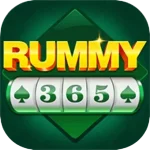Description
Mastering Rummy: A Comprehensive Guide The combination of skill, strategy, and a little bit of luck in the well-known card game rummy has enthralled players worldwide. Forming sets and runs from a rummy culture card hand is the fundamental idea of the game. A run is a series of three or more cards in the same suit, whereas a set is made up of three or four cards of the same rank but different suits.
Blending these combinations to reduce the number of points in your hand when another player leaves is the goal. The rules of the game, which can be played with two or more players, can differ slightly depending on whether it’s Indian Rummy, Oklahoma Rummy, or Gin Rummy. A certain number of cards are dealt to each player, and the remaining cards are arranged in a draw pile. By creating 777 slots legitimate melds, players try to improve their hands as they alternately draw from the draw or discard piles. Any player hoping to succeed in rummy must comprehend these basic ideas. Players must learn the fundamental rules as well as the scoring schemes, which Classic 777 Slots APK can vary depending on the type of rummy being played.
For example, in Gin Rummy, when one player leaves the game, players score points based on the number of unmatched cards that remain in their opponents’ hands. By comparison, Indian Rummy frequently uses a more intricate scoring system that includes penalties for unmelded cards and points for different combinations. A player’s strategy and overall performance can be greatly impacted by their understanding of these scoring nuances. Success in rummy depends on having a winning mindset since it affects choices & gameplay in general.
Because the game can be unpredictable, players need to develop patience and resilience. Players can keep their focus and composure while playing by acknowledging that skill and strategy are crucial, even though luck also plays a part. Because of this balance, players can modify their tactics in response to the game’s changing dynamics. Also, cultivating an acute sense of observation is essential. It is important for players to observe not just their own hands but also those of their opponents. Observing trends in other people’s play can reveal important information about their tactics & goals.
By making better decisions about which cards to keep & which to discard, this awareness can increase one’s chances of winning. Learning from past experiences is another component of a winning mindset. Players can gradually improve their tactics by thinking back on past games to identify errors and lost chances.
Recording effective plays & tactics, either physically or mentally, can be a useful tool for future games. For any serious Rummy player, adopting a growth mindset promotes adaptability and constant improvement. Rummy strategy revolves around building melds, and players need to approach this task with foresight and careful planning. Setting forming runs as the top priority over sets whenever feasible is a useful tactic. While sets are restricted to particular ranks, runs are typically more adaptable because they can hold extra cards as they are drawn.
For instance, drawing an 8♠ would enable you to run farther if you have a 5♠, 6♠, and 7♠, but drawing another 5 wouldn’t greatly improve your hand. “Keeping your options open” is another crucial factor to take into account. Instead of making an early commitment to a single combination, this entails keeping cards that might contribute to several melds. To form a run or a set later, for example, you could hold onto a 2♦ or 5♦ if you are holding a 3♦ and 4♦. This adaptability may be essential for changing the cards that are drawn during the game.
Players should also pay attention to which cards they discard. If an opponent goes out, you can reduce your possible losses by discarding high-value cards that don’t add to your melds. It is best to avoid discarding cards that could aid opponents in finishing their melds, on the other hand.
This tactic not only strengthens one’s own hand but also thwarts the plans of rivals. In Rummy, discarding is a crucial element that has a big impact on the game’s result. Gamers need to learn to make good decisions about which cards to hold onto & which to discard. Discarding cards that are unlikely to add to your melds while also taking your opponents’ needs into account is a basic rule. To minimize possible point losses, it might be prudent to discard valuable cards early on if you have multiple high-value cards that don’t fit into any melds. Another good tactic is to keep a close eye on the trash pile.
When an opponent removes a card from the discard pile, it usually means they are trying to make a particular meld with that card. It might be wise to refrain from throwing away cards that could help them finish their hand in these situations. Holding onto any 6 or 8♣ could stop your opponent from forming a run, for instance, if you see them picking up 7♣ from the discard pile.
When it comes to discarding, timing is also very important. Particularly if they believe a player is about to win, players should exercise caution when discarding cards that are almost finished with an opponent’s meld. Strategically discarding can both protect your hand from being easily completed by others and open up opportunities for opponents. Jokers and wild cards give rummy gameplay an exciting new level of complexity.
These multipurpose cards are extremely valuable assets in a player’s hand because they can be put in place of any other card in melds. One’s chances of winning can be greatly increased by knowing how to use these cards. Using jokers to accomplish challenging melds or runs that would be difficult to accomplish with standard cards alone is a popular tactic. For example, you can form that meld without waiting for specific draws if you have two 9♠ & need one more card to complete a set but don’t have another 9 from any suit.
You can do this by using a joker as a substitute. This adaptability can transform a hand that would otherwise be inactive into a winning one. Players must exercise caution when depending too much on jokers, though.
Even though they are strong tools, overusing them can result in lost chances to create other melds with ordinary cards. Finding a balance between making good use of jokers and continuing to work on creating powerful combinations with the standard cards at hand is crucial. Players should also think about the potential impact their joker usage may have on their opponents’ tactics.
It might be more difficult for you to accomplish your objectives later on if your opponent notices that you are using a joker in a specific meld and modifies their gameplay accordingly. Strategic advantages can be gained throughout the game by being aware of how your actions affect other players. Despite being one of the most underappreciated rummy skills, observation can be crucial to outwitting rivals. Players can learn a lot about their tactics and goals by keeping a close eye on their movements, such as the cards they draw and discard.
When an opponent routinely draws cards from the discard pile instead of the deck, for instance, it can be a sign that they are almost done with a particular meld. Identifying trends in the gameplay styles of rivals is another facet of observation. You can better predict their moves by being aware of the tendencies of certain players, who may prefer forming sets over runs or vice versa.
If an opponent is regularly discarding high-value cards early on, it may indicate that they are trying to go out quickly or are aiming for lower-point combinations. Also, while playing, observing an opponent’s facial expressions and body language can reveal information about their level of confidence or annoyance. You can tell by subtle clues if they are happy with their hand or having trouble with bad draws. Depending on the likelihood that a card will expire soon, you can use this information to help you decide which cards to keep or discard.
For a player to succeed in rummy, they must strategically manage their holdings & discards throughout the game in addition to creating melds. Maintaining balance in your hand is crucial; this means minimizing high-point cards that could result in large losses if an opponent goes out while making sure you have a variety of possible melds. As new cards are drawn and discarded, players should periodically evaluate their hands. This continuous assessment enables modifications in response to shifting game conditions. It could be time to think about throwing away high-value cards sooner rather than later, for example, if you find yourself holding onto multiple of them without any obvious way to merge them. Effective discard management also necessitates anticipating future plays by both your opponents & yourself.
Holding onto certain cards longer than usual, especially those that could help complete their melds, may be a good idea if you believe your opponent is about to go out based on their past draws or discards. This will allow you to gain a better understanding of the potential of your own hand. One of the most important choices players make during gameplay is when to call Rummy, which indicates that you have formed valid melds and are prepared to end the round.
Making this call at the right moment could mean the difference between winning and losing. Generally speaking, you should call rummy when you have formed all of your melds and have very few unmatched points remaining in your hand. Before making this decision, players must take their opponents’ hands into account as well.
It might be wise to hold off on calling rummy if you believe your opponent has been hoarding valuable cards or has been using strategic draws to finish their own melds. This wait gives you a chance to evaluate how strong your hand is in comparison to others’. Also, knowing how the game progresses is crucial for figuring out when to call Rummy. You may have the chance to declare Rummy sooner rather than later if you observe that multiple rounds have gone by with no players going out. This could be a sign that players are having trouble with their hands or are holding onto high-point cards.
Finally, in order to become proficient at Rummy, one must not only comprehend its fundamental rules but also cultivate strategic thinking and acute observational skills. Through strategic use of jokers, prudent discard management, and meld building, players can improve their chances of winning this captivating card game.lottery sambad old




